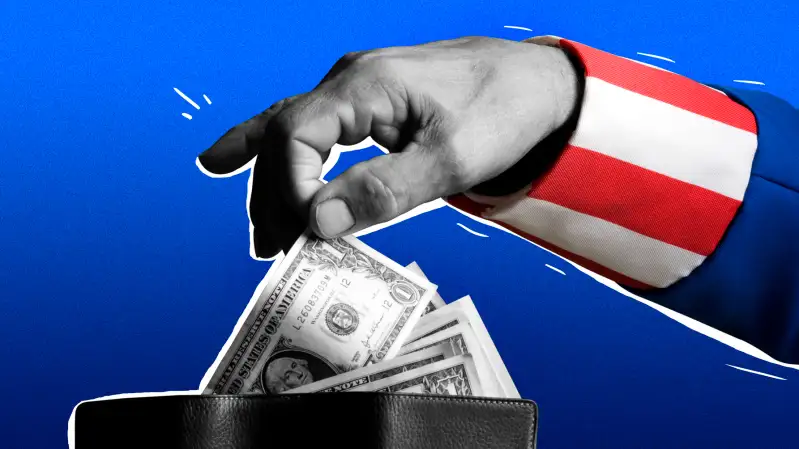Higher Taxes? More Audits? Here's How Increased IRS Funding Could Affect You

Does more funding for the IRS mean higher taxes and more audits?
That's the question many Americans are asking now that the new Inflation Reduction Act — a sweeping bill spearheaded by the Democrats designed to tackle climate change, rising prices, corporate taxes, the federal budget deficit and more — has been passed by both the House and the Senate.
The legislation is headed to President Joe Biden’s desk. Once he signs it into law, the bill will give the chronically underfunded and understaffed IRS a serious boost in funding — $80 billion over the next decade, to be exact. Some $45 billion of that money is earmarked for “enforcement,” which includes the hiring of tens of thousands of new IRS agents.
Cue the outrage.
“Imagine IRS agents descending upon America like a swarm of locusts,” Sen. Ted Cruz, R-Texas, said in an interview with Fox Business. “And by the way, these IRS agents aren’t there to go after billionaires. They’re there to go after you. They’re there to go after your small business. They’re there to go after your family.”
So what can you expect from an IRS that’s newly flush with cash? Here’s everything you need to know.
Will more IRS agents mean more audits?
Audits have a reputation for being an annoying, arduous process. Luckily, you probably have nothing new to worry about.
“These resources are absolutely not about increasing audit scrutiny on small businesses or middle-income Americans,” IRS Commissioner Charles Rettig wrote in a recent letter to lawmakers. Rettig emphasized that the agency’s goal is to keep audit rates from rising beyond their recent rates for households earning less than $400,000 per year.
For the 2019 tax year, just 0.17% of taxpayers earning between $25,000 and $200,000 per year were audited, according to a May report from the Government Accountability Office, or GAO. The same percentage of taxpayers earning between $200,000 and $500,000 per year were audited.
However, audit rates on lower-income workers aren’t negligible — 0.4% of people earning less than $25,000 per year were audited for the 2019 tax year, according to the GAO. A report from the Transactional Records Access Clearinghouse at Syracuse University found that the IRS audited the nation's lowest earners at five times the rate of everyone else during the 2021 fiscal year.
That’s largely to do with the high portion of low-income households that claim the Earned Income Tax Credit. According to the GAO report, it’s much easier and faster for the IRS to audit people who earn low wages and claim the EITC incorrectly than it is to audit the complex finances of millionaires and billionaires.
When it comes to the new funding provided by the Inflation Reduction Act, the IRS has repeatedly said its goal is to increase enforcement for the ultra-wealthy individuals who habitually underreport what they owe. Rettig has also argued that the improvements the agency will be able to make with the money — think more staff and better IT support — will make it less difficult for people to comply with the law. In fact, he claimed it could actually reduce the frequency of audits.
Former IRS Commissioner John Koskinen echoed that view in an interview with PBS Newshour last week: “The vast majority of taxpayers are actually going to benefit,” he said, because the “level of taxpayer service is going to increase significantly.”
A little improvement could go a long way, at least in theory, in solving IRS problems like delayed refunds and the paper-return backlog.
Will the Inflation Reduction Act make your taxes go up?
Here's another bit of good news: There’s a significant chance your tax bill won’t go up in any meaningful way as a result of the Inflation Reduction Act.
In a blog post last week, Tax Policy Senior Fellow Howard Gleckman wrote that other than a small group of businesses owners who claim large pass-through expenses on their income tax returns, “nobody would pay more in federal individual income tax, no matter what their income,” after the bill becomes law.
That new pass-through rule is the only tax increase for individual taxpayers in the bill, according to Gleckman, who noted that it doesn’t take effect until 2027 anyway.
There’s also a chance you could see your tax bill go down, if you’re in the market for a new car this year — the bill will expand an existing tax credit for new electric vehicles and create a new credit for used electric vehicles.
“But on average,” Gleckman wrote, “the vast majority of households will barely notice any tax change, one way or the other.”
More from Money:
The New Inflation Reduction Act Won’t Lower Inflation — but It Could Save You Money
The IRS Wants to Change the Crypto Question on Tax Returns (Again)

